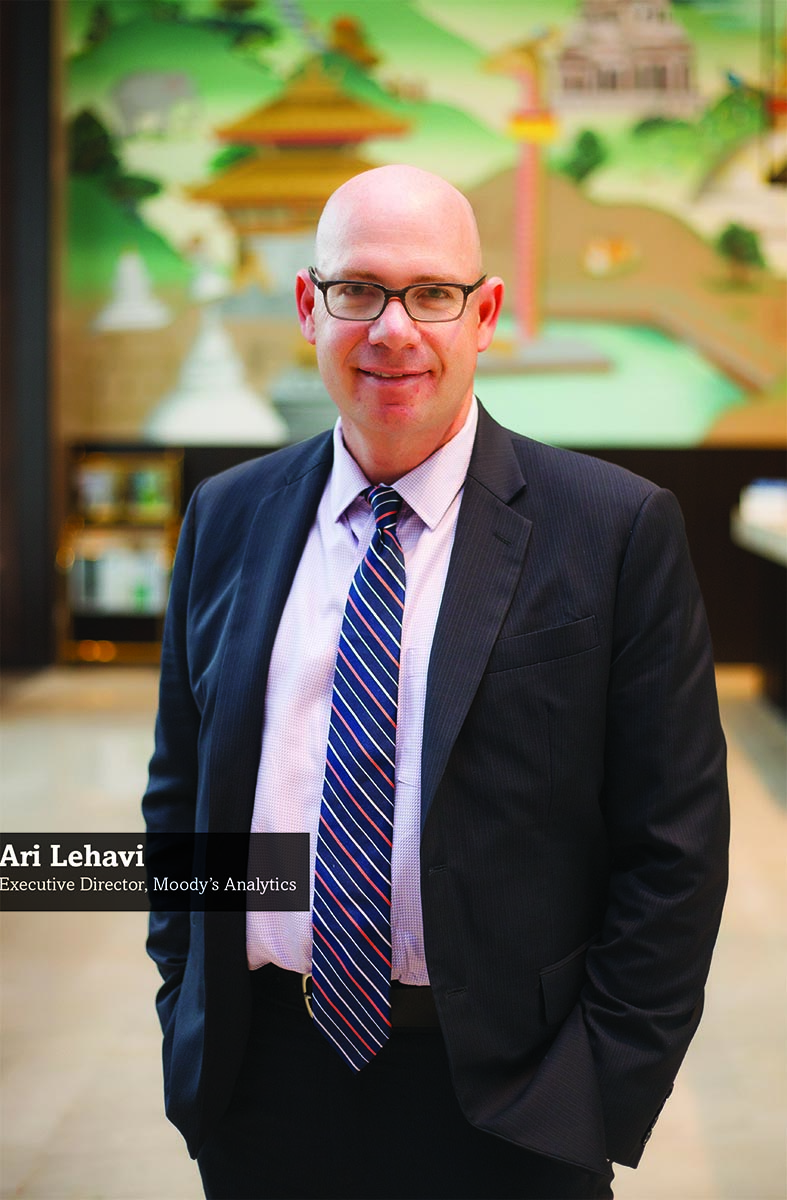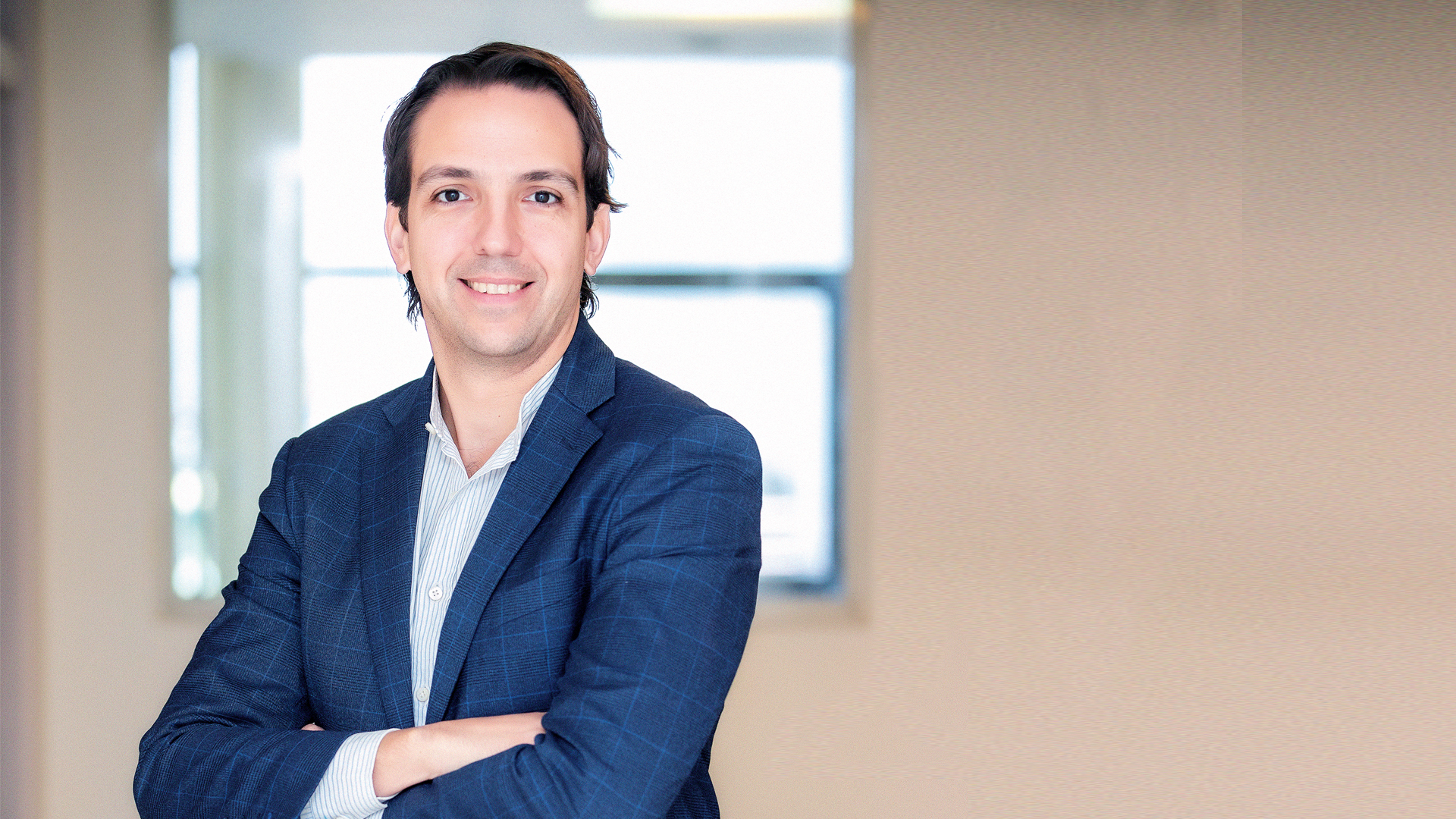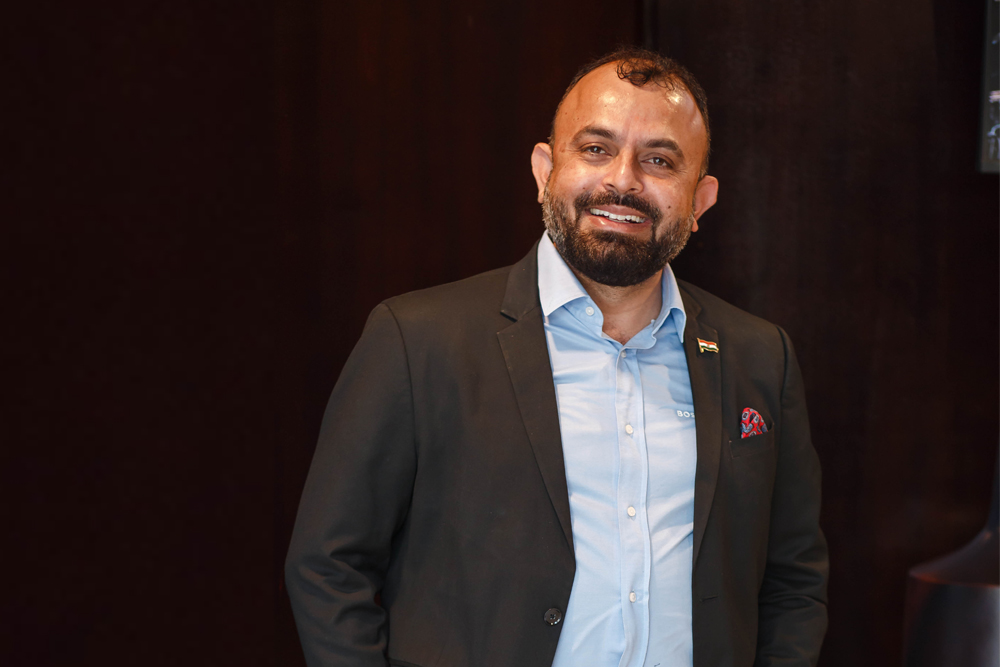
Ari Lehavi is the Executive Director and Head of Learning Solutions Division at Moody’s Analytics which provides financial intelligence and analytical tools to help business leaders make better, faster decisions. He joined Moody’s in 2001 and became Managing Director of Product Development and Strategy in 2006.Before Moody’s, Lehavi worked as a strategic consultant with corporate executives during which he suggested strategies leading to profitable growth. He worked as an investment banker focused on financial services and technology before working as a strategic consultant.
Lehavi is also the Chairman of the Advisory Board of the Bank Street College Liberty program for leadership and education of underserved youth. He obtained joint Master’s and Bachelor’s degrees with honours from Stanford University where he was awarded with the Sobieski Award in Economics for creative thinking. He also has an MBA in finance from the University of Chicago.
Dibesh Dangol of B360 met with Ari Lehavi during his visit to Nepal and interviewed him on aspects of relationship banking and the value of human capital. Excerpts:
What brings you to Nepal?
I am here in Nepal representing Moody’s Analytics, a holding company of Moody’s Corporation, which provides financial analysis software and services. Another holding company of the corporation is Moody’s Investor Service which is a credit rating agency. We provide range of data, tools, services and trainings for capabilities development to financial institutions around the world. Our capabilities support a range of appropriate development stages of organisations and markets.
I run Learning Solutions division at Moody’s Analytics. It’s a very good area for expanding or developing markets to maintain capabilities and develop global standards. We tend to do well with financial institutions in markets where they want to compete externally, improve capabilities and modernise. The first step we take is to teach clients how to do their work better, and later they invest in more systems and technologies.
If you look at what makes a single, biggest and fastest impact, it is making people get better at what they are doing.We have a lot of solutions that are appropriate for the more advanced developing markets or economies, but training tends to align very well with markets looking to upgrade capabilities and move to the next level.
We have a partner here, National Banking Institute (NBI), with whom we have been working with through an organisation that Moody’s Corporation acquired, Omega Performance. I was invited here by Sanjib Subba, CEO of NBI to talk at a program on the topic: Developing better credit and risk management capabilities through adopting industry gold standard certifications from Moody’s Analytics. Through partnership with NBI, we are selling Omega products into this market and expanding through more products and solutions available to financial institutions.
Do you think it is a good trend that the banks are beginning to de-emphasise the human side of their operations?
It’s not a good thing at all. It reminds me about heavy reliance on models which led to financial crisis of 2008.When the models got advanced, they didn’t question the outcome for tomorrow. I have also written an article about digital platforms competing for attractive segments in the market for lower cost and at better data personalisation and information. It presents a competitive challenge for banks. Their turnarounds on loans are much longer, abilities to personalise are lower, and it’s more expensive.
There are banks that aren’t looking at these digital platforms as an existential threat or problem, but are looking at them as alternative platforms. De-emphasising human capital in favour of technology is very dangerous. In the financial crisis when there was no human overlay and everything was relied on systems, everybody knows what happened. You have to use technology to support and enhance what you are doing. Once technology is more relevant and automated, people will need to figure out how to add more value which is why we are here. We think it is important for people to recognise and eventually what we are doing will be important.
I have seen data that shows that 70% of transactions worldwide still happen at the branches. If so many people still come to the branches, the financial institutions have two options –either they are stuck with physical branches costing a lot of money and don’t generate enough revenue or they can turn those branches into a source of strength by teaching people how to sell, build relationships and do business. So yes, personal care or relationship does matter more than anything right now in financial institutions.
How do you place the seemingly contradictory world view that advocates for the rise of AI and at the same time declares that “humans are making an unexpected comeback”?
Yes, there are technology advancements happening in the world which have threatened the human workforce, but human workforce is necessary to run and oversee the work of technology. Also, in terms of relationship building with customers, direct and clear human to human communication is hard to be replaced by technologies. An example can be taken of Bank of America. The bank added human options to enhance robo investment offering which combined automated portfolio with human advice. This is one of the many examples happening around the world that blends technology and human workforce.
How do you define Relationship Banking?
It actually means what it sounds. It’s an idea where the decision - on the recommendation that supports the guidance on your financial needs overtime - is done not through the computer but through a human. It could be a human streaming through a call centre and doesn’t have to be sitting in front of you, but somebody developing human relationship with you so that they can understand you and where you are heading to.
What value do you see in human capital?
Human capital is vital for any type of businesses. Though most of the things have been automated and we have become dependent on machines or technology, there still needs to be a person behind the technology to oversee the activities. If any problem arises, the machine cannot fix it itself but human has to. This also means that value of skilled human capital is also increasing.
In Nepal, the high-handedness of banks and financial institutions in their dealing with customers is repeatedly criticised with no change. Your thoughts.
Customers should be the first priority of any business or organisation. I am not aware of banks and financial institutions being bossy over here in Nepal so I cannot blame them directly, but if they are doing so they should stop and show respect to their customers.
Why do bank staffs need repeated trainings and certifications?
Learning is a continuous process. In today’s time, everything is evolving rapidly. Whatever people might have learned during their undergraduate or post-graduate studies might not be practicable anymore which is why such trainings and certifications are necessary. These trainings and certifications help bankers gain practical knowledge and keep track of changes and learn new things. People who have MBA degree enrol into Chartered Financial Analyst (CFA) program because they want to get into something that’s meaningful and can uplift their career.



.jpg)


